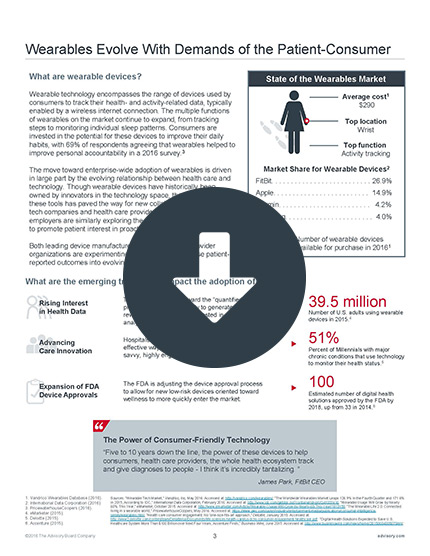Auto logout in seconds.
Continue LogoutExperts warn that the technology designed to help you better understand your sleeping habits could actually worsen your insomnia, Karen Zraick and Sarah Mervosh report for the New York Times.
Understand the latest trends in sleep services
The problem with sleep trackers
Wearable devices and sleep tracker apps are designed to provide users with an overview of their sleep habits, including their bedtime, heart rate, and quality of sleep, by tracking the user's noise, movement, and biometric data.
But Kelly Baron, the director of the University of Utah's behavioral sleep medicine program and author of a case series on sleep trackers, said the technology may have an unexpected downside: Patients may become overly concerned with their sleep "scores," which are sometimes inaccurate, scientifically ill-grounded, and may vary from person to person, Baron explained.
"People were putting a lot of stock in what [their sleep tracker] was telling them," she said. "Like, 'I'm afraid I'm not getting enough deep sleep. There's something wrong with me.'"
Do sleep devices increase sleep anxiety?
Sleep trackers provide a "flood of data and buzzwords," including users' sleep debt percentages, sleep rhythms, sleep disruptions, and comparisons to other users—all of which can "easily become confusing," Zraick and Mervosh report.
Further, research has found that sleep trackers sometimes overestimate the amount of sleep users get per night, especially if the tracker relies on movement to identify sleep. For instance, if a user is awake but lying very still, the tracker might think they are asleep, Zraick and Mervosh write.
But many users don't recognize their device's limitations. In their case series, Baron and her colleagues found that patients spent an excessive amount of time in bed to get higher sleep numbers on their apps—a habit that can actually worsen insomnia.
The researchers also found it difficult to get patients to stop using their sleep tracking devices and apps, even if the data generated were proven incorrect. In one instance, a participant told doctors that the tracker showed that her average sleep efficiency was only 60%. After undergoing a formal sleep study, researchers found that the woman slept deeply.
"Then why does my Fitbit say I am sleeping poorly?" she asked.
Baron and colleagues even coined a term for a sense of preoccupation "with improving or perfecting … wearable sleep data": "'orthosomnia,' with 'ortho' meaning straight or correct, and 'somnia' meaning sleep," they wrote in the case series.
Is sleep anxiety really that widespread?
But makers of Fitbit and other sleep tracking devices say that anxiety over the wearable devices is "overblown," Zraick and Mervosh report.
Conor Heneghan, a research director for Fitbit, said very few users experience sleep anxiety, and noted that the device is supposed to be used only as "a tool" to help users better "understand their own sleep health."
Heneghan also maintained that wearable sleep trackers such as Fitbits can provide users with reliable data. A study, supported by Fitbit, found that Fitbit sleep data matched sleep data collected through medical-grade monitoring equipment 70% of the time.
What's better than a sleep tracker? Perhaps your intuition.
Seema Khosla, medical director of the North Dakota Center for Sleep, noted that some patients with sleep trackers engage in bad sleep habits like going to bed at a different time each day or using their phones before bed. "People will shell out 200 bucks for some sleep device, but we're not willing to just shut off our phones and go to bed," she said.
Hawley Montgomery-Downs, a professor of psychology at West Virginia University, recommends that patients avoid sleep trackers altogether, adding that the best way for a patient to track how much sleep they need each night is simply to pay attention to how their body feels.
"Trust that, instead of the device," she said (Zraick/Mervosh, New York Times, 6/13).
Your primer on wearables
Wearable technology encompasses the range of devices used by consumers to track their health- and activity-related data. As the multiple functions of wearables on the market continue to expand, consumers are becoming more invested in the potential for these devices to improve their daily habits. Wearable technology can help to facilitate patient activation and improve clinical outcomes.
The primer details how rising interest in health data, advancing care innovation, and expansion of FDA device approvals has impacted the adoption of wearables.
Don't miss out on the latest Advisory Board insights
Create your free account to access 1 resource, including the latest research and webinars.
Want access without creating an account?
You have 1 free members-only resource remaining this month.
1 free members-only resources remaining
1 free members-only resources remaining
You've reached your limit of free insights
Become a member to access all of Advisory Board's resources, events, and experts
Never miss out on the latest innovative health care content tailored to you.
Benefits include:
You've reached your limit of free insights
Become a member to access all of Advisory Board's resources, events, and experts
Never miss out on the latest innovative health care content tailored to you.
Benefits include:
This content is available through your Curated Research partnership with Advisory Board. Click on ‘view this resource’ to read the full piece
Email ask@advisory.com to learn more
Click on ‘Become a Member’ to learn about the benefits of a Full-Access partnership with Advisory Board
Never miss out on the latest innovative health care content tailored to you.
Benefits Include:
This is for members only. Learn more.
Click on ‘Become a Member’ to learn about the benefits of a Full-Access partnership with Advisory Board
Never miss out on the latest innovative health care content tailored to you.


